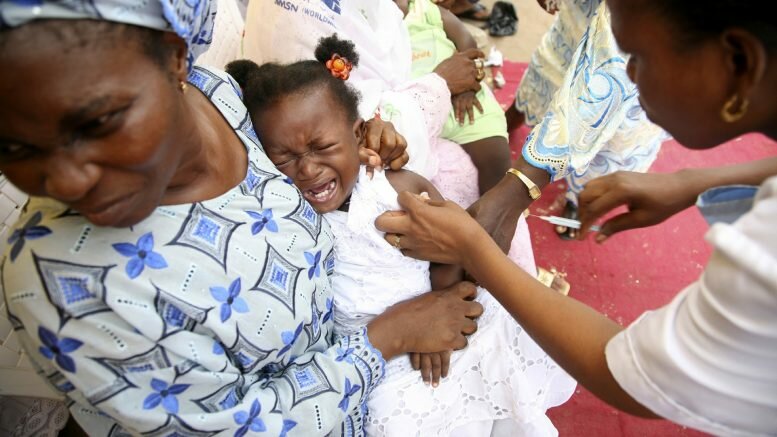A new malaria vaccine will be tested on 360,000 children in Kenya, Ghana and Malawi, according to the World Health Organization (WHO).
The children, who will be aged 5 to 17 months, will be vaccinated between 2018 and 2020.
The new vaccine, ‘RTS, S’, may provide partial protection against a disease that took 429,000 lives worldwide in 2015. 92% of the victims were in Africa, and two thirds of them were children under the age of 5.
The vaccine, also known as Mosquirix, doesn’t provide full protection against malaria, but clinical trials have shown that the numbers of cases were reduced by 40%.
It will therefore be recommended that other protection against malaria be used, such as mosquito nets, insecticides, and malaria prevention medicines.
As the spread of malaria is so extensive, it is hoped that the vaccine will save tens of thousands of lives.
‘The possibility of getting a malaria vaccine is great news. The information we collect during the pilot project will help us decide how we can use the vaccine on a wider basis,’ said Matshidiso Moeti, regional director of the WHO in Africa.
The vaccine was developed by the British drug giant, GlaxoSmithKline, in collaboration with the PATH Malaria Vaccine Initiative.
The pilot project will provide answers to both how effective the vaccine is, and whether the vaccine program can be implemented in communities where the risk of malaria is high.
The vaccine must be given in four rounds at fixed intervals, and the timetable is different than for the measles, hepatitis and meningitis vaccines.
Source: NTB scanpix / Norway Today




